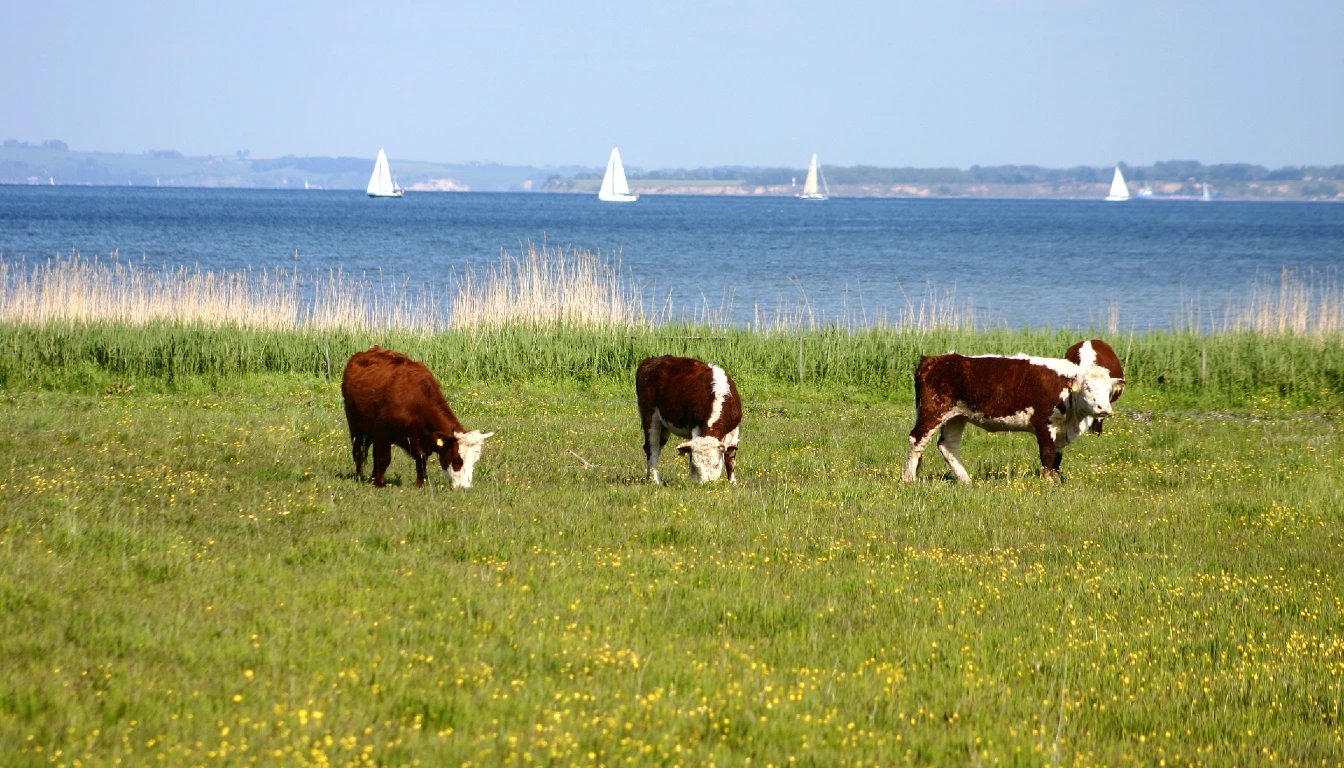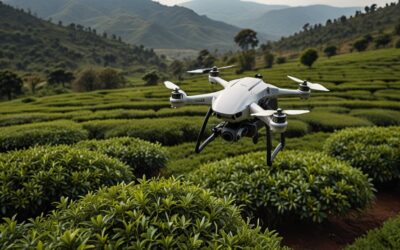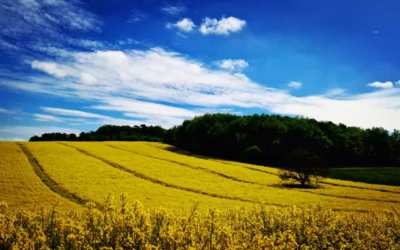Researchers at Aarhus University are embarking on a pioneering project that could revolutionise the way we perceive the role of cows in agriculture and their impact on climate change. Assistant Professor Carsten Stefan Malisch from the Department of Agroecology has been awarded a prestigious Sapere Aude grant to investigate the potential of tannin-rich plants to reduce methane emissions from cows.
Methane, a potent greenhouse gas, has a significant environmental impact, being 28 times more effective at trapping heat in the atmosphere than CO₂. Cows, as ruminants, are substantial emitters of methane due to their unique digestive processes. This reality has often positioned them as major contributors to climate change within the agricultural sector. However, eliminating cows from agriculture is not a straightforward solution, as they play a vital role in ecosystems and human nutrition, transforming grass and other non-edible crops into consumable products like dairy and meat.
“Some people think so, but cows are actually important to our ecosystems as well as human nutrition. Ruminants are the only animals that can eat grass and other crops that we humans can’t eat and turn them into products that we can eat. This could be cheese, dairy products, and meat,” explains Malisch. His research, funded by the Independent Research Fund Denmark under the Sapere Aude DFF Research Leader Programme, aims to address the environmental impact while maintaining these benefits.
Selecting cows on pasture as the focal point, the new research will particularly emphasise multispecies grasslands comprising tannin-rich plants such as salad burnet (Sanguisorba minor) and big trefoil (Lotus pedunculatus). These plants, incorporated into the cows’ diet, are expected to interact with soil microbes and the cows’ digestive systems to reduce methane emissions. Another anticipated benefit is the enhancement of carbon storage in the soil, helping balance methane emissions and carbon sequestration.
“You can have cows in a barn, feeding them, among other things, grain that could have been used as food for us humans. Cows on pasture, on the other hand, eat something that we humans cannot eat, and at the same time they create value for the grasslands, as they remove significant amounts of carbon from the atmosphere and store it underground,” states Malisch. The aim is to contribute to a more climate-friendly, and perhaps even climate-neutral, milk production.
The research project will not be conducted in isolation. Malisch has assembled a robust international team involving collaborators from Wageningen University, Turku University, ETH Zurich, and Luke in Finland, in addition to researchers from Aarhus University. The international collaboration will allow the experiments to be conducted across various countries, offering a broader and more diverse perspective on the results.
“These results could be used in many more countries than Denmark, so it is important that we involve other research institutions. Another advantage is that the various partners have a great deal of knowledge about tannin-rich plants, experts in genetics, soil and biochemistry, which we can benefit from greatly,” adds Malisch.
He further acknowledges the support from the Department of Agroecology at Aarhus University, highlighting its excellence in addressing agricultural systems’ problems at different scales. The department’s research sections, including “Agricultural Systems and Sustainability” and the newly established LandCraft Center, provide crucial support ensuring that the research yields practical agricultural practices.
Malisch’s project aligns seamlessly with his interest in circular farming systems, which optimise the use of all available resources by turning non-edible crops into consumable food and fertiliser. In such systems, animals provide nutrients for the fields, reducing the need for chemical fertilisers and minimising competition between food and feed.
The Sapere Aude grant not only signifies recognition of Malisch’s innovative research but also represents a significant step towards developing agricultural practices that are both productive and environmentally sustainable. This research could lay the groundwork for future systems where ruminants continue to play a crucial role in providing high-quality, climate-friendly products from circular systems with minimal food competition.




